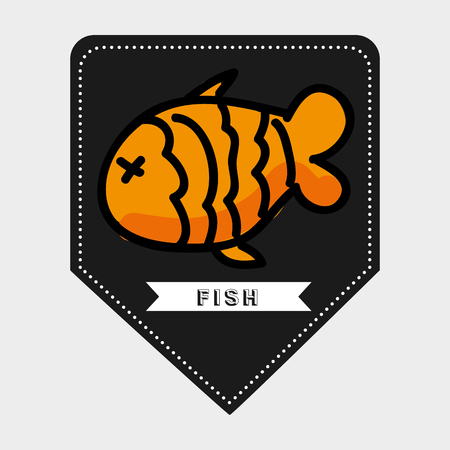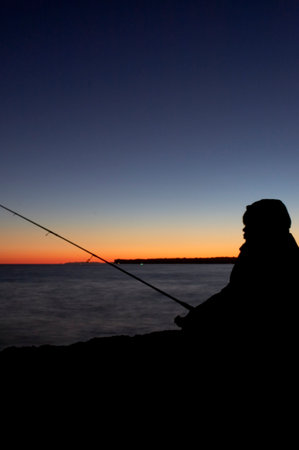Introduction to Fishing in India
India, with its vast network of rivers, lakes, and coastal stretches, boasts a vibrant fishing culture that dates back centuries. From the mighty Ganges and Brahmaputra to the tranquil Kerala backwaters and the Arabian Sea coastline, fishing is not only an essential livelihood for millions but also a cherished recreational activity. The country’s rich aquatic biodiversity attracts anglers from all over the world, making India a sought-after destination for fishing expeditions. For foreign nationals keen on exploring India’s diverse waters—whether casting for the mighty Mahseer in Himalayan rivers or seeking the thrill of deep-sea fishing along the coasts—understanding local rules and obtaining the right licences is vital. This article provides a comprehensive overview of India’s fishing culture, its significance, and the essential guidelines foreign visitors need to embark on a memorable angling experience in this incredible country.
2. Types of Fishing Licences & Where They Apply
India’s vast geography and diverse aquatic environments mean that fishing licences vary significantly depending on the location, type of water body, and species targeted. Foreign nationals must be aware of these differences to ensure compliance with local regulations. Below is a detailed overview of the main types of fishing licences available across Indian states and union territories.
Inland Fishing Licences
Inland waters include rivers, lakes, reservoirs, and ponds. Each state government manages its own set of rules regarding inland fishing. Commonly, permits are issued for specific water bodies or districts, with restrictions on gear type, number of rods, and catch limits. For example, the states of Uttarakhand and Himachal Pradesh are popular for trout fishing in hill streams, requiring special permits from the respective State Fisheries Departments.
Saltwater (Marine) Fishing Licences
For saltwater or marine fishing along India’s extensive coastline—covering states like Goa, Kerala, Tamil Nadu, Maharashtra, and Andhra Pradesh—fishing licences are regulated by both state maritime boards and the Ministry of Fisheries. These permits often distinguish between recreational angling and commercial fishing, with additional permissions needed for deep-sea expeditions or chartered boat trips.
Special Permits for Protected Regions
Certain ecologically sensitive areas such as national parks, wildlife sanctuaries, and protected mangrove forests require special fishing permits. In regions like the Andaman & Nicobar Islands or parts of Northeast India (e.g., Arunachal Pradesh), foreign nationals may need to obtain advance permissions from both local authorities and central environmental agencies. These permits typically come with strict guidelines regarding seasonality, allowed species, and conservation measures.
Summary Table: Fishing Licence Types by Region
| Region/State | Type of Licence | Permit Authority | Key Restrictions |
|---|---|---|---|
| Uttarakhand/Himachal Pradesh | Inland (Trout/Angling) | State Fisheries Department | Catch limits, gear restrictions |
| Maharashtra/Goa/Kerala | Saltwater/Marine | State Maritime Board/Fisheries Dept. | Seasonal closures, species bans |
| Andaman & Nicobar Islands/Northeast States | Special Permit (Protected Area) | Environmental Agency + Local Authority | Advance permission required, limited access zones |
| Panjab/Bihar/Uttar Pradesh (Ganges belt) | Riverine Inland Permit | Irrigation & Water Resources Dept. | No endangered species capture allowed |
Note:
The above table provides only a general guideline; always check with the relevant local authority before applying for a fishing licence in any Indian region.

3. Eligibility and Application Process for Foreign Nationals
Obtaining a fishing licence in India as a foreign national involves a clear set of eligibility criteria and application steps, designed to ensure responsible angling and compliance with local regulations. Here’s a step-by-step guide tailored for international visitors looking to experience India’s diverse fishing opportunities.
Who Can Apply?
Foreign nationals visiting India, whether for tourism or business, are eligible to apply for a fishing licence. Applicants must hold a valid passport and visa, and should not be involved in any activity prohibited under Indian wildlife or environmental laws. The process is open to both beginners and seasoned anglers, provided all legal requirements are met.
Required Documents
- Valid Passport: A scanned copy of your passport bio page is mandatory.
- Indian Visa: Proof of a current Indian visa—tourist, business, or other types depending on your stay.
- Local Address Proof: Document showing your address in India during your visit (hotel booking receipt, rental agreement, or letter from host).
- Passport Size Photographs: Recent photos as per the specifications of the local fisheries department.
Application Submission: Online and Offline Options
The method of applying may differ across states, but most regions offer two main channels:
Online Application
Several state fisheries departments provide online portals where you can fill out the application form, upload required documents, and pay fees digitally. For example, Maharashtra and Kerala have user-friendly websites catering to foreign applicants. After submission, you’ll receive an acknowledgment and further instructions via email.
Offline (In-Person) Application
If online services are unavailable or you prefer personal interaction, visit the nearest local fisheries department office. Staff will guide you through the process—collecting forms, verifying documents, and paying fees (often via bank draft or cash). In popular angling destinations like Uttarakhand or Himachal Pradesh, dedicated counters assist foreign anglers during peak seasons.
The processing time varies by state but generally ranges from a few hours to several working days. Make sure all information is accurate to avoid delays. Once approved, you will receive your fishing licence—either as a physical document or digital copy—granting you legal access to designated waters for recreational fishing in India.
4. Rules, Regulations, and Cultural Etiquette
When fishing in India as a foreign national, it is crucial to adhere to the rules and regulations established by both central and state authorities. These guidelines ensure the sustainability of aquatic life and foster harmony with local communities. Below is a summary of the most important aspects:
Important Fishing Regulations in India
| Aspect | Details |
|---|---|
| Fishing Seasons | Varies by state; typically closed during monsoon (June–August) for breeding. |
| Catch Limits | Daily and seasonal limits apply, depending on species and waterbody. Always check with local authorities. |
| Protected Species | Certain fish like Mahseer and Hilsa are protected in specific regions. Catching them is prohibited without special permission. |
| Permitted Gear | Use of nets, explosives, or chemicals is strictly banned. Only rod-and-line angling is generally allowed for recreational fishing. |
| Licence Requirement | A valid fishing licence is mandatory; special permits needed for national parks or wildlife sanctuaries. |
Fishing Seasons and Area-specific Guidelines
Each state may have unique open and closed seasons. For example, in Uttarakhand, the trout fishing season runs from October to May, while many southern states observe a complete ban during the southwest monsoon. Verify dates with the respective State Fisheries Department before planning your trip.
Cultural Etiquette: Respecting Local Communities & Customs
- Seek Permission: Always request permission from village elders or panchayat leaders if you intend to fish near rural settlements or on community-managed waters.
- Dress Modestly: In many riverbank villages, modest attire is expected—avoid revealing clothes, especially near religious sites.
- Avoid Sacred Areas: Many rivers and lakes have sections considered holy by locals. Refrain from fishing or even entering these areas.
- No Littering: Carry back all trash, especially plastic, as leaving litter is viewed as disrespectful and harmful to both community and environment.
- Engage Locally: A friendly greeting (“Namaste”) goes a long way. Engage with local anglers; they often share valuable insights about spots, customs, and safety tips.
Pointers for Responsible Angling in India
- Confirm all permits and licences before casting your line.
- Abide by catch-and-release policies where mandated—especially for rare or endangered species.
- If unsure about rules or boundaries, consult local guides or fisheries officials; ignorance is not accepted as an excuse under Indian law.
Summary Table: Quick Reference for Foreign Anglers
| Rule/Custom | Status/Advice |
|---|---|
| Licence Required? | Yes – always obtain before fishing. |
| Cultural Sensitivity Needed? | Yes – respect local beliefs & traditions. |
| Banned Species? | Check locally – varies by region & season. |
| Littering Fines? | Sizable penalties imposed for violations. |
| Best Practice? | “Leave no trace” & engage politely with locals. |
5. Fees, Validity, and Renewals
When it comes to obtaining a fishing licence in India as a foreign national, understanding the fee structure, validity period, and renewal procedures is crucial. The fees for fishing licences can vary widely across different states and water bodies, reflecting local regulations and the type of fishing activity permitted. Generally, short-term permits suitable for tourists—such as daily or weekly licences—tend to be more affordable and are designed for those visiting India on a temporary basis. In contrast, long-term residents or expatriates who wish to fish regularly may be required to pay higher fees for monthly or annual licences.
Typical Licence Fees
Fishing permit fees for foreign nationals usually start from INR 200–500 per day for basic angling in popular spots like Uttarakhand or Himachal Pradesh. More exclusive locations or game-fishing areas (for example, those offering Mahseer angling) may charge up to INR 2000 per day or more. These rates are generally higher than those charged to Indian citizens but often include certain amenities or conservation surcharges.
Validity Duration
The validity of fishing licences depends on the type chosen. Tourist permits are often valid for a single day, three days, or up to a week, allowing flexibility for those travelling through multiple regions. Long-term licences—for expats or those on extended stays—can be valid for one month, six months, or even one year, depending on local policies and the applicant’s visa status.
Renewal Process
Renewing your fishing licence in India is usually straightforward but may require in-person visits to the local fisheries department office or an official tourism counter. Some states now offer online renewal facilities. You will need to provide identification (such as your passport and visa), proof of previous licensing (if applicable), and payment of the relevant renewal fee. It is wise to begin the renewal process before your current permit expires to avoid legal hassles during your stay.
Differences in Fees: Tourists vs Long-Term Residents
The primary difference in fee structure lies in the duration and purpose of the visit. Tourists receive short-term access at lower overall costs but pay higher daily rates. Long-term residents are eligible for discounted monthly or yearly rates but must provide additional documentation related to their residency status. Furthermore, some states offer package deals or concessional rates if you intend to fish across multiple designated locations within their jurisdiction.
Important Note:
Always check with the local fisheries department about any seasonal changes in fees or special offers for international visitors. This ensures compliance with Indian regulations while enjoying angling adventures across this culturally rich country.
6. Popular Fishing Destinations & Local Contacts
Top Angling Hotspots in India
India boasts a rich diversity of fishing environments, from tranquil backwaters to mighty rivers. Among the most sought-after destinations for foreign anglers are:
Goa: Coastal Paradise
The sun-kissed beaches of Goa are well-known not only for their vibrant culture but also for saltwater and estuary fishing. Here, you can try your hand at catching barramundi, threadfin salmon, or even snapper. Numerous local operators offer guided trips; ask around at popular beaches like Palolem or Candolim for reliable contacts.
Kerala Backwaters: Serene Experience
Kerala’s intricate network of backwaters offers a unique angling setting. Try Vembanad Lake or Alleppey canals for species such as pearl spot or catfish. Many homestays and houseboats collaborate with seasoned guides who can introduce you to the region’s fishing traditions.
Ramganga River: For the Golden Mahseer
In Uttarakhand’s Jim Corbett region, the Ramganga River is legendary for golden mahseer fishing. Local angling clubs and eco-resorts near Marchula and Bhikyasen often arrange permits and gear rental for foreigners, making it easy to plan an adventure in this scenic Himalayan landscape.
Brahmaputra River: Adventure in Assam
The mighty Brahmaputra in Assam attracts serious anglers seeking mahseer and other native species. Towns like Tezpur and Guwahati have established fishing communities and guides who are familiar with licensing requirements for foreign nationals.
Tips for Finding Local Guides & Clubs
- Reach out to local tourism offices, which often maintain lists of certified angling guides familiar with English and international requirements.
- Connect with regional angling clubs through social media or travel forums; they frequently host group excursions and provide updated advice on licences.
- Many fishing lodges and eco-resorts offer package deals that include permits, equipment, and expert guidance tailored for foreigners.
Insider Advice
Always confirm your guide’s credentials and ensure all necessary permissions are arranged before setting out. Indian hospitality is renowned—don’t hesitate to ask locals for recommendations or introductions to experienced anglers!

